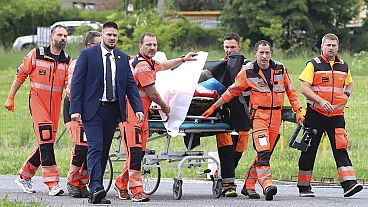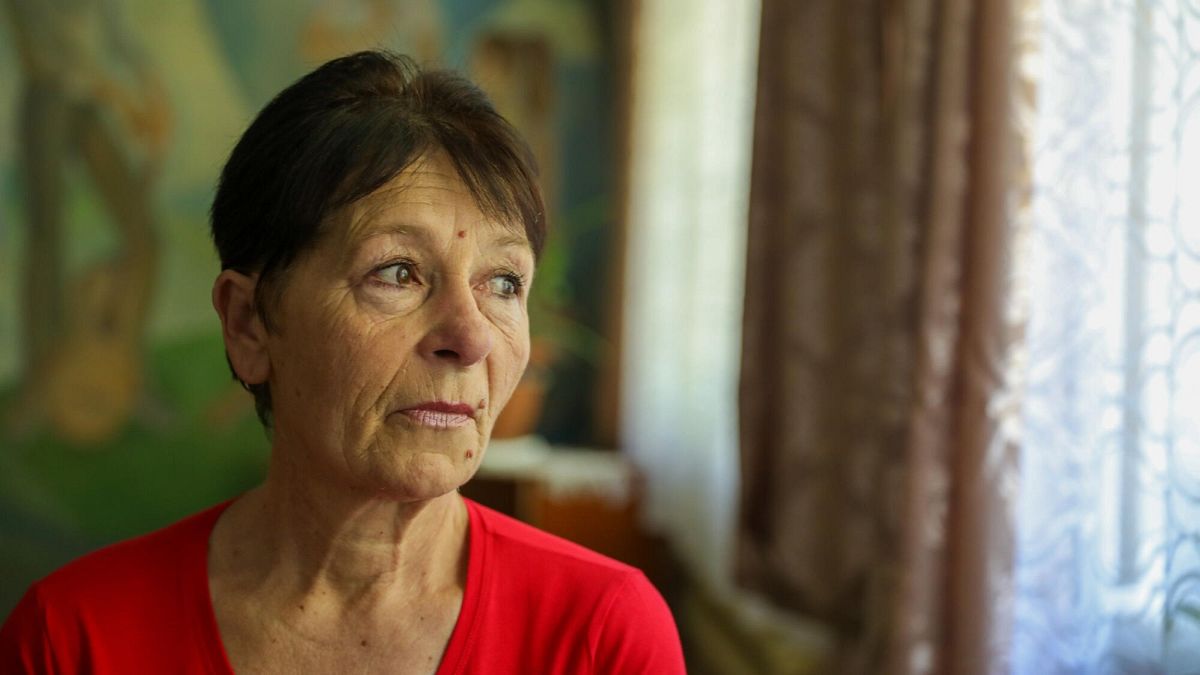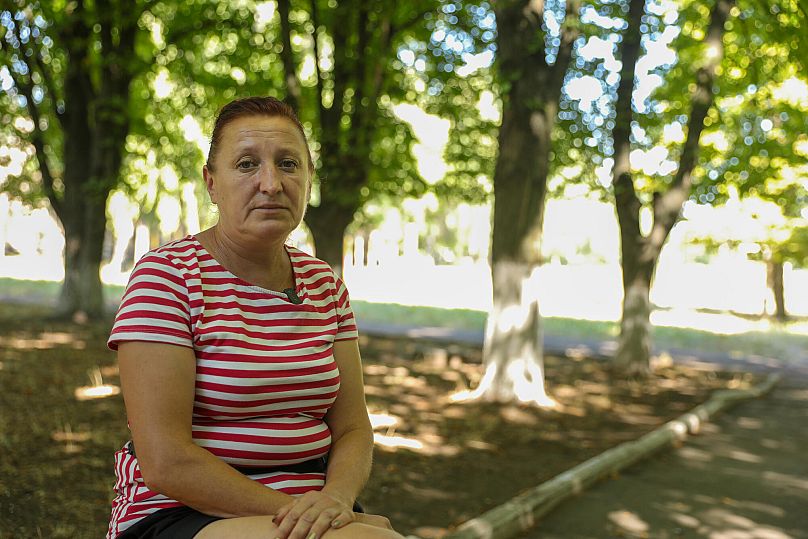“There was shelling every minute, every second – day and night. Every missile was a roll of the dice, they hit places randomly and people died."
While it is understandably the death in Russia's war in Ukraine that normally grabs headlines, today the plight of those living amid the bloodshed is being put under the spotlight.
Writing for Euronews to mark Mental Health Day on 10 October, health chiefs say the psychological trauma of the violence is unprecedented since World War II.
"Almost 10 million people at the present time are potentially at risk of mental disorders such as acute stress, anxiety, depression, substance use, and post-traumatic stress disorder or PTSD," writes Dr Hans Kluge, head of the World Health Organization's Europe region.
"The greatest needs are in areas the most severely impacted by the conflict, but populations in relatively safer parts of the country are also affected by anxiety or sadness, difficulty sleeping, fatigue, anger and unexplained somatic symptoms.
"These are all normal reactions to abnormal situations and, for most people, these symptoms do improve over time, especially if they can meet their basic needs and access social support – a challenge at this time."
'Every missile was a roll of the dice'
At least 6,114 civilians have been killed in the war, including 390 children, according to the latest estimates of the Office of the UN High Commissioner for Human Rights (OHCHR).
Around 7.6 million refugees have left Ukraine, while a further 7 million have been displaced within the country.
Alla is among the latter category and has been receiving mental health support from Médecins Sans Frontières.
She finally managed to flee Kherson -- a city in southern Ukraine under Russian occupation since the early days of the war -- after several attempts.
“There was shelling every minute, every second – day and night. Every missile was a roll of the dice, they hit places randomly and people died.
"I knew so many people who died, including my friend.
"It was still so hard to leave home. We’re here now [a displacement shelter in the Dnipropetrovsk region] but we still want to go home.
"Everything is destroyed there, but even if it’s just rubble, it’s still our home."
Yevhenia, a mother from a village in the Kherson region, said Russians had used their house while they spent weeks in the basement.
Her husband was shot and spent a month and a half there without treatment or medicine.
On 3 April they learnt their son had died in the war.
"We are recovering, but we can’t forget what we went through," said Yevhenia, speaking from a displacement centre in Dnipropetrovsk region.
"We have no home now, it was destroyed. But we still want to return and rebuild our village.”
'They have nightmares, they're afraid of very loud sounds'
Damage to mental health will be the most devastating legacy of the war in Ukraine, aid groups say.
It's been combined with damage to Ukraine's healthcare capacity, with more than 350 military attacks on these facilities in the six months to August.
Aid groups, including the Red Cross and Médecins Sans Frontières, have dispatched workers who are trained in providing psychological first aid.
The Ukrainian Red Cross has also been operating a national mental health support hotline that can be reached by anyone in the country.
"We have a lot of requests, also we see the effects of people who have lost a lot," said Anna Didenko, from the Ukrainian Red Cross.
"They are separated from other family members, children are separated from their fathers while they go to the western part of Ukraine or abroad.
"We see the reaction to stress among children. They are more closed, they don't want to integrate, or to talk to their parents or other children. They have nightmares, they're afraid of very loud sounds. For example, if they hear some loud noises, too loud, the children fall to the ground and put their arms over their heads, it's not natural.
Dr Kluge and Dr Jarno Habicht, WHO's representative in Ukraine, praised the "resilience" of Ukrainian people but said that mental health support should be scaled up.
"We need to support them in learning how to manage their own stress and support each other, ensuring that those who develop mental health conditions can access services that are safe and evidence-based," they said.
"Psychological interventions and clinical management of mental health conditions should be scaled up."



